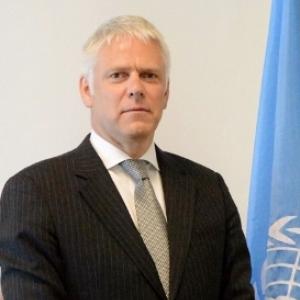At the start of this year, a Filipino scientist became one of the directors of the International Atomic Energy Agency (IAEA), the world's preeminent organization for nuclear technology and its safe and peaceful applications.
The Filipino scientist is a woman--Dr. Jane Gerardo-Abaya. She now leads the IAEA’s Department of Technical Cooperation Asia and the Pacific Division which provides technical cooperation support to 37 countries and territories in Asia and the Pacific.
Dr. Abaya's appointment reverberated among Filipino communities around the world and was cited by the Philippine government as a remarkable achievement in the country's efforts to increase women's representation at national and global centers of power.
The theme for International Women’s Day 2019 is “Think Equal, Build Smart, Innovate for Change”. The theme puts innovation at the centre of efforts to build solutions that work for women and girls and achieve gender equality.
Last February 22, in observance of the International Day for Women and Girls in Science, the International Labour Organization (ILO) cited four Filipino women that have distinguished themselves in Science, Technology, Engineering and Mathematics (STEM): Aileen Judan Jiao, president and country general manager of IBM Philippines and the first Filipina leader of the company; Ambe Tierro, senior managing director for global artificial intelligence of Accenture Technologies; Maria Cristina Coronel, president and chief executive officer of Pointwest Technologies; and Michie Ang, founding director of Women Who Code Manila.
Dr. Abaya and these four other Filipina game changers in STEM are truly exceptional. Their achievements, and others with them, are examples of what has contributed to placing the Philippines among the top ten countries of the 2018 Gender Gap Report of the World Economic Forum that benchmarks 149 countries on their progress towards gender parity across four thematic dimensions: Economic Participation and Opportunity, Educational Attainment, Health and Survival, and Political Empowerment.
Still, as we congratulate the Philippines on this achievement, much remains to be done before the Philippines can truly claim to have attained Sustainable Development Goal 5, to achieve gender equality and empower all women and girls - with the other goals of the 2030 Agenda that also need to be achieved to support this objective. In fact and unfortunately, many women in the Philippines continue to face existential challenges on a daily basis.
These challenges include threats to their lives from childbirth. Today, out of 100,000 Filipino women who give birth, 114 do not survive. This maternal mortality rate is higher than in other countries in Southeast Asia. It is a long way off from the Sustainable Development Goal 3 of reducing maternal deaths to less than 70 out of every 100,000 live births. The recent adoption of the Universal Health Care Act, or Republic Act 11223, if fully implemented, will go a long way in addressing weaknesses of the health system that have failed to prevent deaths resulting from complications related to pregnancy. As the Philippines moves forward, let’s all join in the call that “no woman should die while giving life”.
They also include exposure to sexual violence. According to the National Demographic and Health Survey of 2017, 14-15% of Filipino girls as young as 13 to 17 years old have been sexually violated. The same survey showed that two in five women, from 15 to 49 years old, have experienced physical or sexual violence and have NEVER told anyone about what had happened to them nor sought help to put an end to their torment. And let’s not forget that young boys have also been victimized. In fact, by almost 6 percentage points, more boys than girls in the ages of 13 to 17 have experienced sexual violence. We welcome ongoing legislative advocacy to strengthen the Anti-Rape Law in order to raise the age of consent from below 12 to 16, and to remove the "forgiveness clause" by which the subsequent marriage between the offender and the victim extinguishes the criminal action or the corresponding penalty. Let’s all come together in a resolve that latest by 2030, all girls and women should be free of sexual violence, as should boys and men.
The four dimensions of the WEF Gender Gap Report do not fully account for conditions that continue to hold Filipino women back in some areas, but they reflect unmistakable progress that has been achieved in improving the lives and well-being of Filipino women and girls over the years. They also affirm that an all-of-society approach involving the government, civil society and other stakeholders can finally bridge a chasm that is as old as humanity itself.
By the same convergence of purpose, outstanding contributions by women will continue to advance society; mothers will live to see their children being born; and all persons, regardless of gender, will be free from sexual violence.
This is the future envisioned in the Sustainable Development Goals and with our shared resolve and action, by 2030 we will be able to celebrate the realization of full gender equality on every 8 of March, International Women's Day.


